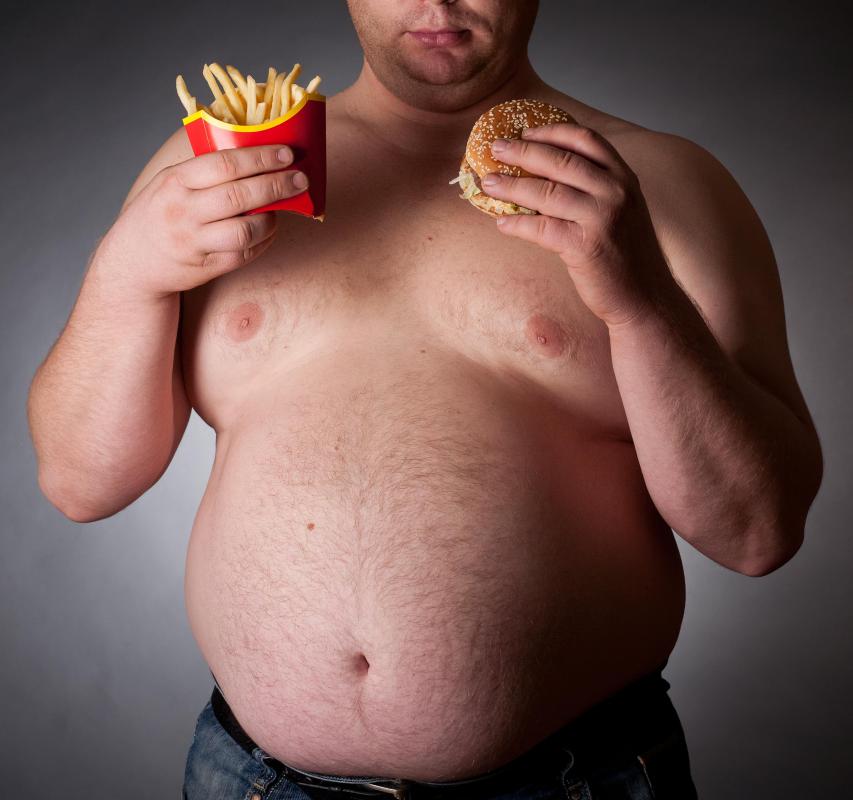At TheHealthBoard, we're committed to delivering accurate, trustworthy information. Our expert-authored content is rigorously fact-checked and sourced from credible authorities. Discover how we uphold the highest standards in providing you with reliable knowledge.
What is Exogenous Obesity?
Exogenous obesity is a condition in which a person is overweight as a result of an excessive intake of food. If a person habitually consumes more food than he or she is able to use for the daily energy needs of his or her body, the body stores any extra energy as fat, which can lead to obesity. This particular type of obesity is caused by individual actions, not by malfunctions of bodily systems.
Understanding exogenous obesity is easier if there is an understanding of how the body processes the energy, or calories, it takes in. A certain number of calories is needed for the body to perform basic involuntary functions, such as breathing and digestion. More calories are needed to perform activities such as routine movement, and even more are needed for the body to perform well in stressful situations, such as intense exercise. If an individual is eating roughly the same number of calories that his or her body burns on a daily basis, he or she will not gain weight. Unfortunately, if an individual is regularly eating more calories than his or her body can use, weight gain is generally inevitable.

Overeating is the cause of exogenous obesity, but there are many possible causes of overeating. In cases of exogenous obesity, overeating is typically not the result of hunger. Situational and psychological factors are often responsible for an excess intake of calories.
Situational overeating can occur in a variety of scenarios. One example is mindlessly munching on junk food while watching television or at the movies. Chances are good that no one sits down to a giant tub of buttered popcorn if they just need a snack, but at the movies it is a tradition, and therefore seems excusable. Similarly, cocktail parties or dinners out with friends can lead to situational overeating. Finger foods fill gaps in conversation and give guests a way to occupy their hands, and casual dinners at home do not usually include a bread basket, appetizer, high-calorie entrée, drinks and dessert.

Psychological factors also contribute to exogenous obesity. It is all too common for people to eat out of boredom, stress, or loneliness. Eating to fill a void causes ignorance of bodily cues that indicate fullness, and can lead to a drastic increase in calories consumed. Overeating to cope with stress at work together with feeling too busy to exercise can be a lethal combination.

Left unchecked, exogenous obesity can cause a host of health problems. Excess weight puts stress on bones and joints, can lead to the development of diabetes and heart disease, and increases the risk of certain cancers. Fortunately, since exogenous obesity is caused by personal actions, it is possible to reverse the condition, though many people seriously struggle to alter their lifestyle choices.
AS FEATURED ON:
AS FEATURED ON:















Discuss this Article
Post your comments